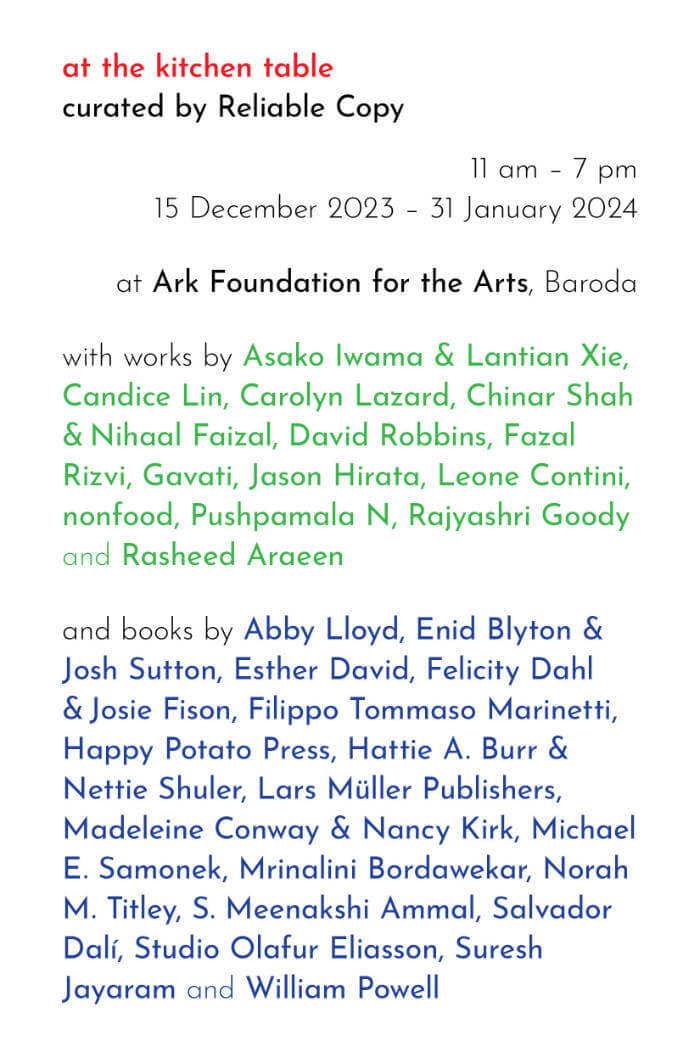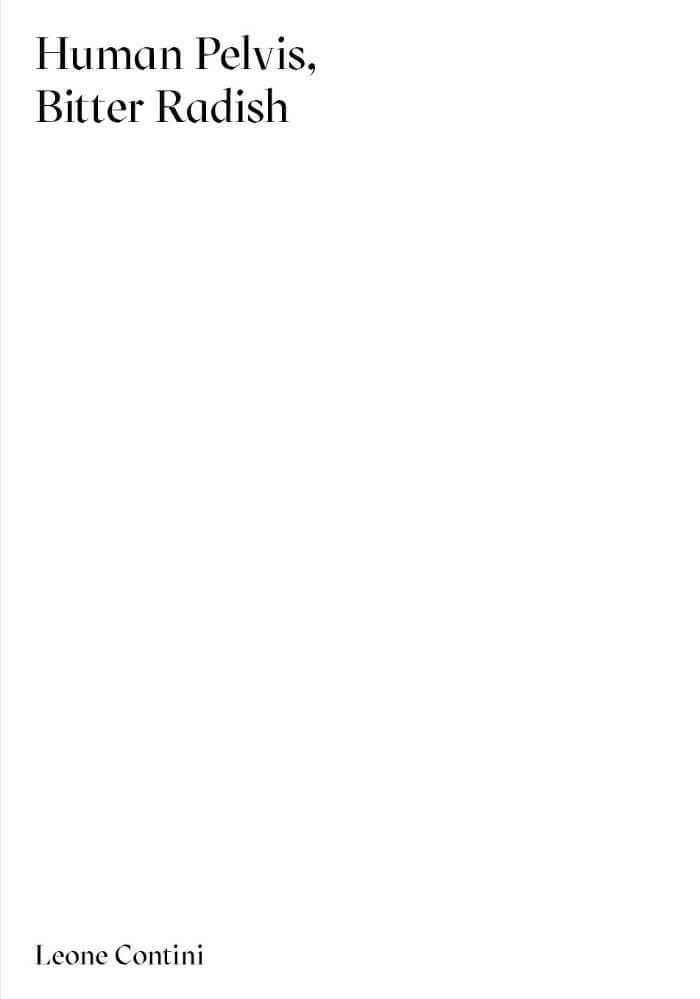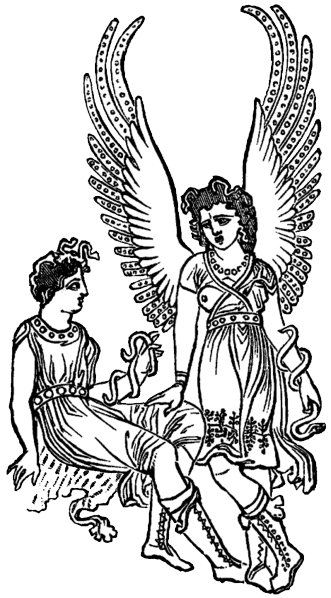An exhibition guide for a multi-part show conceived by Reliable Copy in India, featuring a range of cookbooks, videos, and artworks around food, by a strong grouping of practices.
Approaching curatorial practice from the perspective of publishing, At the kitchen table looks at how food has historically been—and continues to be—inscribed through various conventional formats, as well as the channels and platforms by which it continues to circulate as material, trace, memory, and culture. Imagined as a show of documents, the exhibition brings together a selection of cookbooks, video works, and artworks.
The selection of cookbooks feature recipes and narratives compiled from artists and art-spaces, anthologies of recipes from literary fiction, cookbooks that function as historical records, and some that are self-published by individuals or community groups. The video works highlight and examine the well-worn format of the instructional cooking class and its associated performativity. Meanwhile, the artworks, which are presented via peripheral, referential, or stand-in documents, respond to (and often assume) the forms of the marketed consumable product, the stand-alone restaurant, the family archive, the recipe book, the menu, the assembly, and the feast.
The proposal, the script, the poster, the photographic documentation, the resource list, the newsletter, the Keynote presentation, and the audio recording—elements that are traditionally left out of the work's exhibition display, but that are often included in catalogues, monographs, or other publications around the work—become stand-ins for the artworks conceptually on display. Through this introduction of artworks via the documents that surround, engender, and represent them, the exhibition seeks to collapse the space between the exhibition and its documentation, the library and the gallery, and the event and its eventual publication.
At the kitchen table is imagined as a travelling, multi-part exhibition that will expand through its responses to the contexts, sites, and venues of its iterations, including those of a publication.
Works by Candice Lin, Carolyn Lazard, Chinar Shah & Nihaal Faizal, David Robbins, Fazal Rizvi, Gavati, Jason Hirata, Lantian Xie, Leone Contini, nonfood, Pushpamala N, Rajyashri Goody, Rasheed Araeen.
Books by Abby Lloyd, Archana Pidathala, Enid Blyton, Esther David, Felicity Dahl & Josie Fison, Filippo Tommaso Marinetti, Happy Potato Press, Mrinalini Bordawekar, Norah M. Titley, S. Meenakshi Ammal, Salvador Dali, Studio Olafur Eliasson, Suresh Jayaram.





